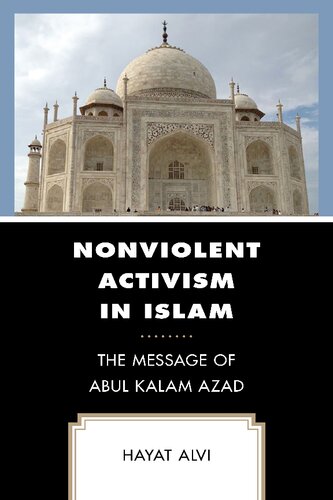

Most ebook files are in PDF format, so you can easily read them using various software such as Foxit Reader or directly on the Google Chrome browser.
Some ebook files are released by publishers in other formats such as .awz, .mobi, .epub, .fb2, etc. You may need to install specific software to read these formats on mobile/PC, such as Calibre.
Please read the tutorial at this link: https://ebookbell.com/faq
We offer FREE conversion to the popular formats you request; however, this may take some time. Therefore, right after payment, please email us, and we will try to provide the service as quickly as possible.
For some exceptional file formats or broken links (if any), please refrain from opening any disputes. Instead, email us first, and we will try to assist within a maximum of 6 hours.
EbookBell Team

4.0
26 reviewsIn this book, author Hayat Alvi’s purpose and focus are to illustrate the legal basis for Islamic nonviolent activism, as Maulana Abul Kalam Azad promoted and exemplified. Maulana Azad’s endorsement of nonviolent civil disobedience as a means to expel British colonial rule from India poses a strong counterargument against Islamist extremism, and a legal precedent for nonviolent activism in Islam. Millions of Indian Muslims participated under Maulana Azad and Mahatma Gandhi’s leadership in nonviolent civil disobedience against the British Raj. These facts indicate that there is such a thing as nonviolent activism in Islam. Abul Kalam Azad introduced “nonviolent Jihad” in the form of civil disobedience. As a legitimate religious authority, trained as an Islamic jurist and scholar, he endorsed Mahatma Gandhi’s nonviolent civil disobedience and activism to free India from British colonial rule. A highly respected Islamic scholar and jurist, Maulana Azad’s endorsement of nonviolent civil disobedience provides the legal precedent for nonviolent activism in Islam. Contemporary Muslim leaders and activists can learn lessons from Maulana Azad’s example, and as Alvi’s thoroughly researched book shows, can be an argument against blind dogma, extremism, and militancy in the modern era.